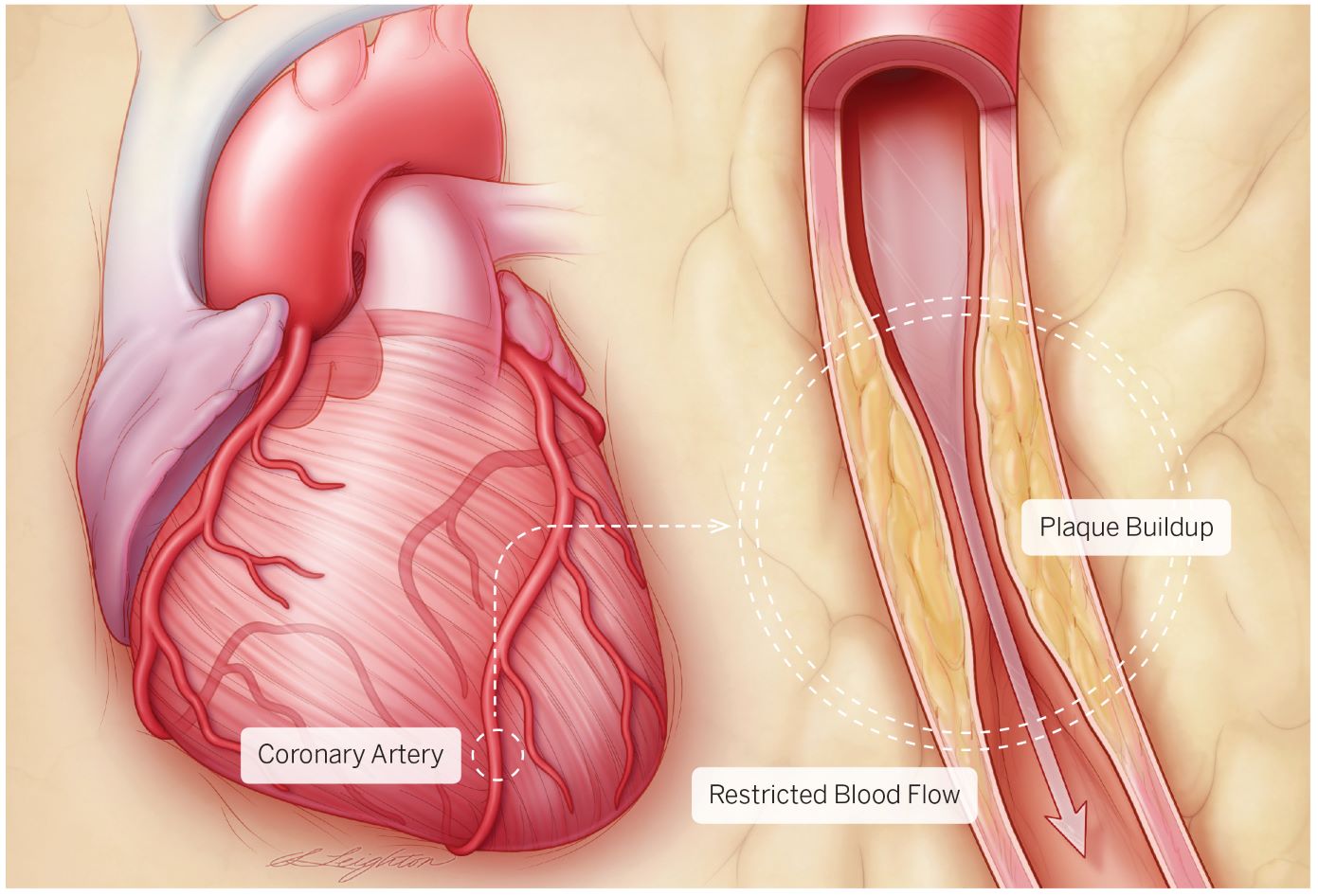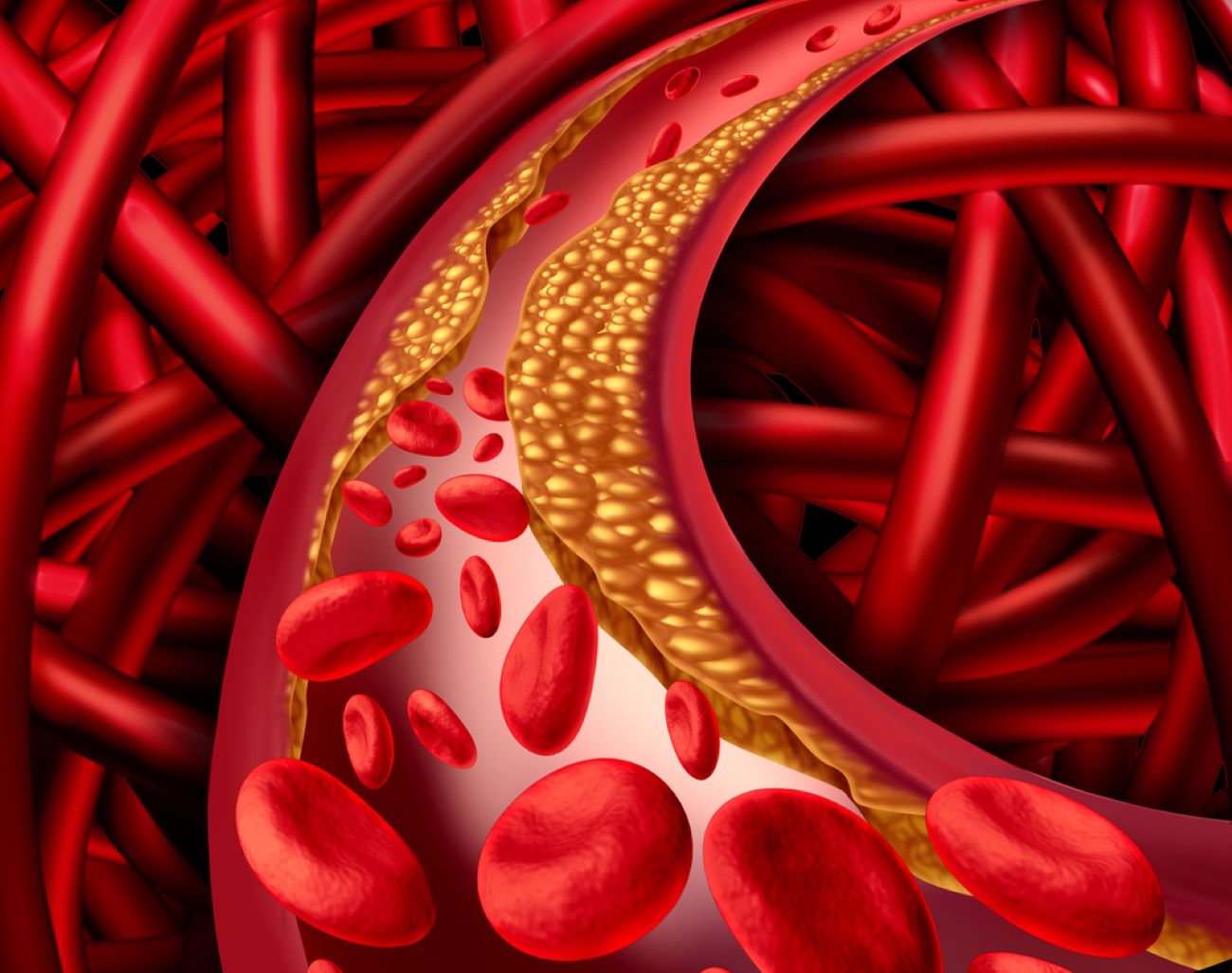Scientists have discovered that the SARS-CoV-2 virus can directly infiltrate atherosclerotic plaques in coronary arteries, triggering an inflammatory response. This finding provides insight into how COVID-19 can lead to cardiovascular complications in some individuals.
Researchers, led by Chiara Giannarelli, MD, PhD, from NYU Grossman School of Medicine, found that directly infected atherosclerotic tissue was present in both people who died with severe COVID-19 and underlying atherosclerosis, as well as in an ex vivo model of human vascular explants.
Infection in both settings caused an inflammatory response and the secretion of pro-atherogenic cytokines, such as interleukin (IL)-6 and IL-1β.
“Considering that plaque inflammation promotes disease progression and contributes to plaque rupture, our results provide a molecular basis for how SARS-CoV-2 infection of coronary lesions can contribute to the acute cardiovascular manifestations of COVID-19, such as myocardial infarction,” Giannarelli’s team wrote in Nature Cardiovascular Research.
In a press release, study co-author Natalia Eberhardt, PhD, from NYU Langone Health, emphasized that these findings offer a direct mechanistic link between COVID-19 infection and the heart complications it provokes.
“The virus creates a highly inflammatory environment that could make it easier for plaque to grow, rupture, and block blood flow to the heart, brain, and other key organs,” she said.
This study builds on previous research that identified a systemic inflammatory response, known as the cytokine storm, which can increase cardiovascular risk.
It was also known that some COVID-19 survivors experience localized myocardial inflammation and cardiac injury, accompanied by higher levels of systemic inflammatory markers.
The current study found that SARS-CoV-2 targets plaque macrophages, particularly cholesterol-loaded primary macrophages, which then orchestrate an over-reactive inflammatory response. The virus also showed a stronger tropism for arterial lesions compared to adjacent perivascular fat.
“This study reiterates the notion that true viral myocarditis by direct tropism of the cardiomyocytes is not the main mechanism of cardiovascular injury, and instead points towards the vascular origin of the cardiac symptoms and findings,” Valentina Puntmann, MD, PhD, from Goethe University Frankfurt, told.

She also noted, “The preference of viral tropism for lipid-laden macrophages, also known as foam cells, in early vascular lesions is extremely relevant because these lesions are ubiquitous, without needing severe atherosclerotic manifestations such as heart attacks or strokes.
The combination of early vascular lesions and COVID-19 infection appears to uncover a human vascular weak spot.”
For the study, the authors used coronary autopsy specimens from eight New York City patients with confirmed COVID-19 from May 2020 to May 2021.
All eight individuals had coronary artery disease and three or more cardiovascular risk factors. The average age was 69.6 years, and 75% were men.
Giannarelli and colleagues identified infected plaque macrophages as the site of SARS-CoV-2 replication in human coronary arteries. They noted that macrophages residing in vascular tissue can undergo self-renewal, contributing to their long-term presence.
“These results shed light onto a possible connection between preexisting heart issues and long COVID symptoms,” Giannarelli stated. “It appears that the immune cells most involved in atherosclerosis may serve as a reservoir for the virus, giving it the opportunity to persist in the body over time.”
Puntmann noted that it remains to be shown “whether the immune response borne by the infected foam cell macrophages in response to the virus may account for the vascular antigen presentation moment and a trigger of subsequent immune dysregulation, a crucial missing piece of evidence underlying the chronic inflammatory microvascular injury behind the cardiac and other clinical manifestations of long COVID.”
The study authors acknowledged the small and relatively sick sample and cautioned against extrapolating their findings to younger, healthy individuals or those affected by other viral strains.
“Despite these limitations, our study highlights the hyperinflammatory response orchestrated by SARS-CoV-2-infected plaque macrophages and foam cells as a mechanistic link between infection of atherosclerotic coronary vessels and acute cardiovascular complications of COVID-19,” they wrote.
Inflammation has gained recognition as a factor in cardiovascular disease in recent years. This concept reached a new milestone when the FDA approved colchicine (Lodoco) as the first anti-inflammatory drug for cardiovascular prevention in adults with established atherosclerotic disease or multiple risk factors.
